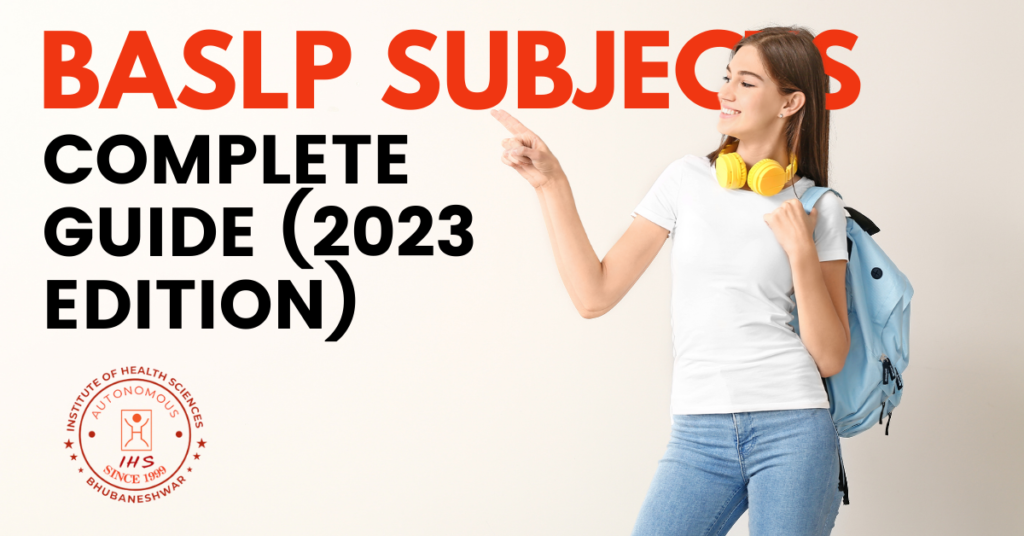BASLP Subjects
BASLP Course, or Bachelor of Audiology and Speech-Language Pathology, is a four-year undergraduate degree program that prepares students to become audiologists and speech-language pathologists.
The Audiology Courses typically includes a combination of theoretical coursework and clinical practicum experiences.
The program covers a wide range of subjects to provide students with a comprehensive understanding of the field.
Common BASLP subjects:
👉 Introduction to Communication Sciences and Disorders: This subject provides an overview of communication disorders, their impact on individuals, and the role of audiologists and speech-language pathologists.
👉 Anatomy and Physiology of the Speech and Hearing Mechanism: Students learn about the structure and functioning of the speech and hearing mechanisms, including the anatomy of the vocal tract, respiratory system, and auditory system.
👉 Speech and Language Development: This subject explores the typical development of speech and language skills in children, covering milestones, theories, and factors that influence language acquisition.
👉 Phonetics and Phonology: Students study the sounds of speech, including the production, classification, and transcription of speech sounds. They learn about the phonetic alphabet (IPA) and phonological processes.
👉 Audiology: This subject focuses on the assessment and management of hearing disorders. Students learn about audiological testing methods, power pf hearing aids, cochlear implants, and auditory rehabilitation.
👉 Speech and Language Assessment: Students gain knowledge and skills related to the assessment of speech and language disorders. They learn about various assessment tools, techniques, and standardized tests used in clinical practice.
👉 Speech and Language Disorders: This subject covers various speech and language disorders across different age groups. Topics include articulation disorders, fluency disorders, voice disorders, language delays, and disorders associated with neurological conditions.
👉 Clinical Audiology: Students learn about the clinical aspects of audiology, including diagnostic procedures, interpretation of test results, and counseling techniques for individuals with hearing impairments.
👉 Clinical Practice in Speech-Language Pathology: This subject provides students with practical experience in working with individuals with communication disorders. Under the supervision of professionals, students apply assessment and intervention techniques in clinical settings.
👉 Augmentative and Alternative Communication: This subject focuses on alternative communication methods for individuals with severe communication impairments. Students learn about augmentative and alternative communication systems and assistive technology.
👉 Voice Disorders: Students explore voice disorders and their assessment and management techniques. Topics include vocal anatomy and physiology, vocal hygiene, and voice therapy approaches.
👉 Neurogenic Communication Disorders: This subject covers communication disorders resulting from neurological conditions, such as aphasia, dysarthria, and cognitive-communication disorders.
👉 Pediatric Audiology: Students gain knowledge and skills specific to audiological assessment and management of children. Topics include neonatal hearing screening, pediatric diagnostic testing, and amplification for children.
These subjects provide students with a strong foundation in audiology and speech-language pathology, preparing them for further specialization or entry-level positions in the field.
It’s important to note that the specific BASLP subjects may vary across different institutions offering the BASLP program.
Read More: 10 Lucrative Audiology Jobs To Watch Out For In 2023 & Beyond
BASLP Subjects At Institute of Health Sciences
The BASLP syllabus is typically divided into semesters, each covering specific subjects and clinical practicum experiences. This includes BASLP 1st year syllabus to 3rd year syllabus.
Here is an overview of the BASLP Course Syllabus covered in each semester at BASLP College In India:
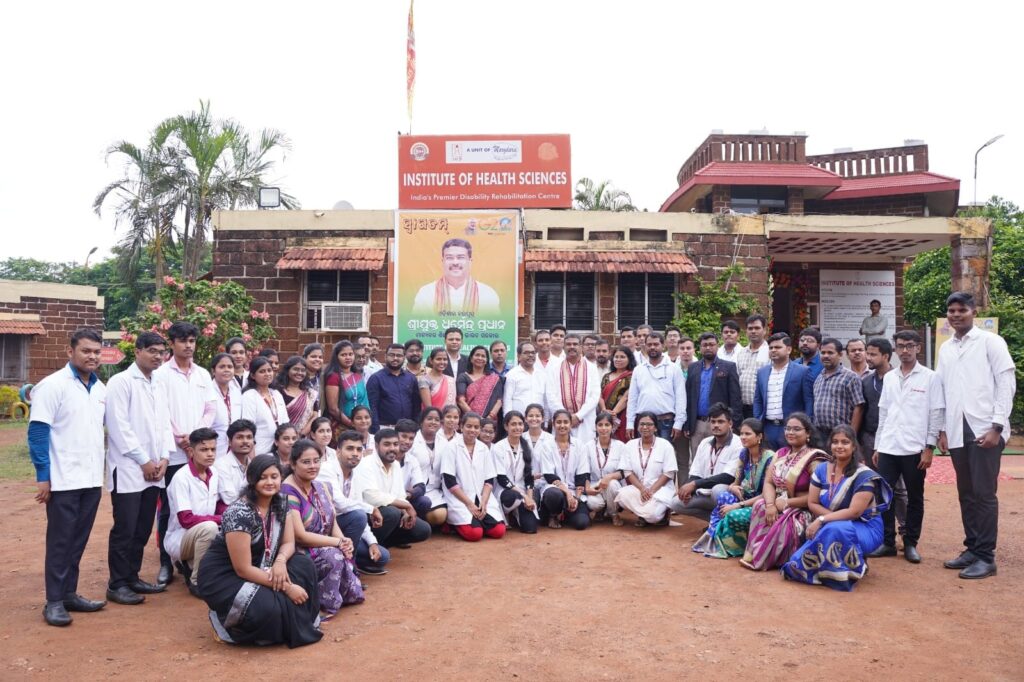
✅ BASLP 1st Semester:
- Introduction to human communication: This BASLP subjects provide an introduction to the basics of human communication, including speech and language development, as well as an overview of speech-language disorders.
- Introduction to hearing and hearing sciences: Students learn about the fundamentals of hearing and the sciences behind it. The subject also covers the management of individuals with hearing impairments.
- Basic medical sciences related to speech and hearing: This BASLP subjects introduce students to basic medical sciences that are relevant to speech and hearing, providing them with a foundational understanding.
- Psychology related to speech and hearing: BASLP subjects explore the psychological aspects related to speech and hearing, understanding how psychological factors can impact communication.
- Clinical practicum, speech-language pathology: This clinical practicum focuses on providing students with hands-on experience in speech-language pathology.
- Clinical practicum audiology: Students engage in clinical practicum activities specifically related to audiology.
- Computer Fundamentals (Optional): This BASLP subjects covers the basics of computer usage, which can be optional depending on the curriculum.
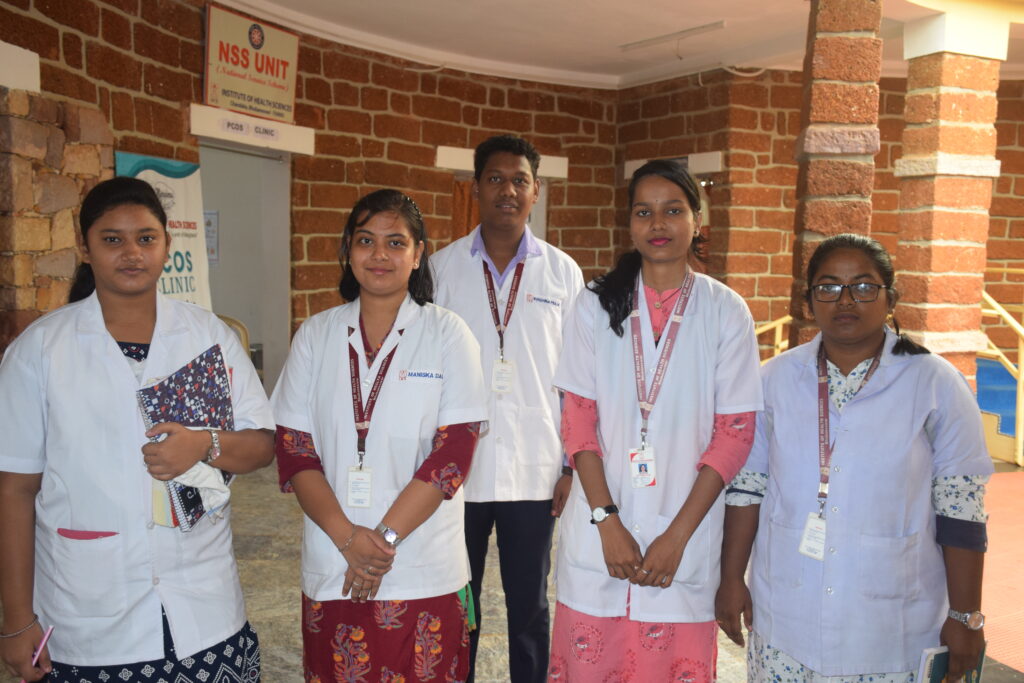
✅ BASLP 2nd Semester:
- Speech language diagnostic and therapeutics: Students learn about diagnostic procedures and therapeutic techniques used in speech-language pathology, including the assessment and treatment of articulation and phonological disorders.
- Voice and laryngectomy: This BASLP subjects focuses on voice disorders and the management of individuals who have undergone laryngectomy.
- Motor speech disorders: Students explore motor speech disorders, such as apraxia and dysarthria, and the methods used for assessment and intervention.
- Diagnostic Audiology: This BASLP subjects covers diagnostic audiology, including various physiological tests used to assess hearing disorders.
- Amplification devices for persons with hearing impaired: Students gain knowledge about hearing aids and other amplification devices used by individuals with hearing impairments.
- Pediatric Audiology: Students focus on audiology assessment and management specifically for children.
- Clinical practicum, speech-language pathology: This clinical practicum provides further hands-on experience in speech-language pathology.
- Clinical practicum audiology: Students continue their clinical practicum activities in audiology.
- Computer Fundamentals (Optional): Similar to the previous semester, this subject covers the basics of computer usage, and its inclusion may vary.
✅ BASLP 3rd Semester:
- Fluency and its disorders: This BASLP subjects explores fluency disorders, including stuttering, and the assessment and management techniques used.
- Neurogenic language disorders in adults: Students learn about language disorders that result from neurological conditions in adults, such as aphasia, and the methods of rehabilitation.
- Rehabilitation Audiology: This subject focuses on the rehabilitation aspects of audiology, including auditory training and counseling.
- Noise measurements and hearing conservation: Students gain knowledge about measuring and managing noise levels to protect hearing.
- Community-oriented professional practices in speech-language pathology and audiology: This subject introduces students to the community-oriented practices involved in speech-language pathology and audiology.
- Basic statistics and scientific inquiry in audiology and speech-language pathology: Students learn about basic statistical concepts and research methods used in audiology and speech-language pathology.
- Clinical practicum, speech-language pathology: Students engage in further clinical practicum activities in speech-language pathology.
- Clinical practicum audiology: This clinical practicum focuses on audiology-specific activities.
- Environmental Studies (Optional): This BASLP subjects covers environmental concepts, which may be optional depending on the curriculum.
✅ BASLP 4th Semester:
- Child Language Disorders: Students explore language disorders that affect children, including developmental language disorders and language delays. They learn about assessment and intervention strategies specific to child language disorders.
- Diagnostic Audiology – Physiological Tests: This subject focuses on advanced diagnostic audiology techniques, including physiological tests such as otoacoustic emissions (OAEs) and auditory brainstem response (ABR) tests.
- Implantable Hearing Devices Clinical in Speech Language Pathology: Students learn about implantable hearing devices, such as cochlear implants, and their clinical applications in speech-language pathology.
- Clinical in Audiology: This clinical component provides students with practical experience in audiology settings, where they apply their knowledge and skills in diagnosing and managing hearing disorders.
Speech And Hearing Course Fees: Understanding Investment And ROI
✅ BASLP 5th Semester:
- Structural Anomalies & Speech Disorders: Students study structural anomalies that can affect speech production, such as cleft lip and palate, and the associated speech disorders. They learn about assessment and intervention techniques for these conditions.
- Fluency and its Disorders: This BASLP subjects delves into fluency disorders, including stuttering, and the assessment and treatment methods used to manage them.
- Paediatric Audiology: Students further their knowledge and skills in audiology specific to pediatric populations, including specialized assessment techniques and management strategies for children.
- Aural Rehabilitation in Children: This subject focuses on the rehabilitation of children with hearing impairments, covering techniques and strategies to improve communication and auditory skills.
- Clinicals in Speech-Language Pathology: Students engage in clinical practicum activities specific to speech-language pathology, applying their skills in assessment and intervention under supervision.
- Clinicals in Audiology: This clinical component offers students practical experience in audiology settings, allowing them to further develop their diagnostic and management abilities.
-
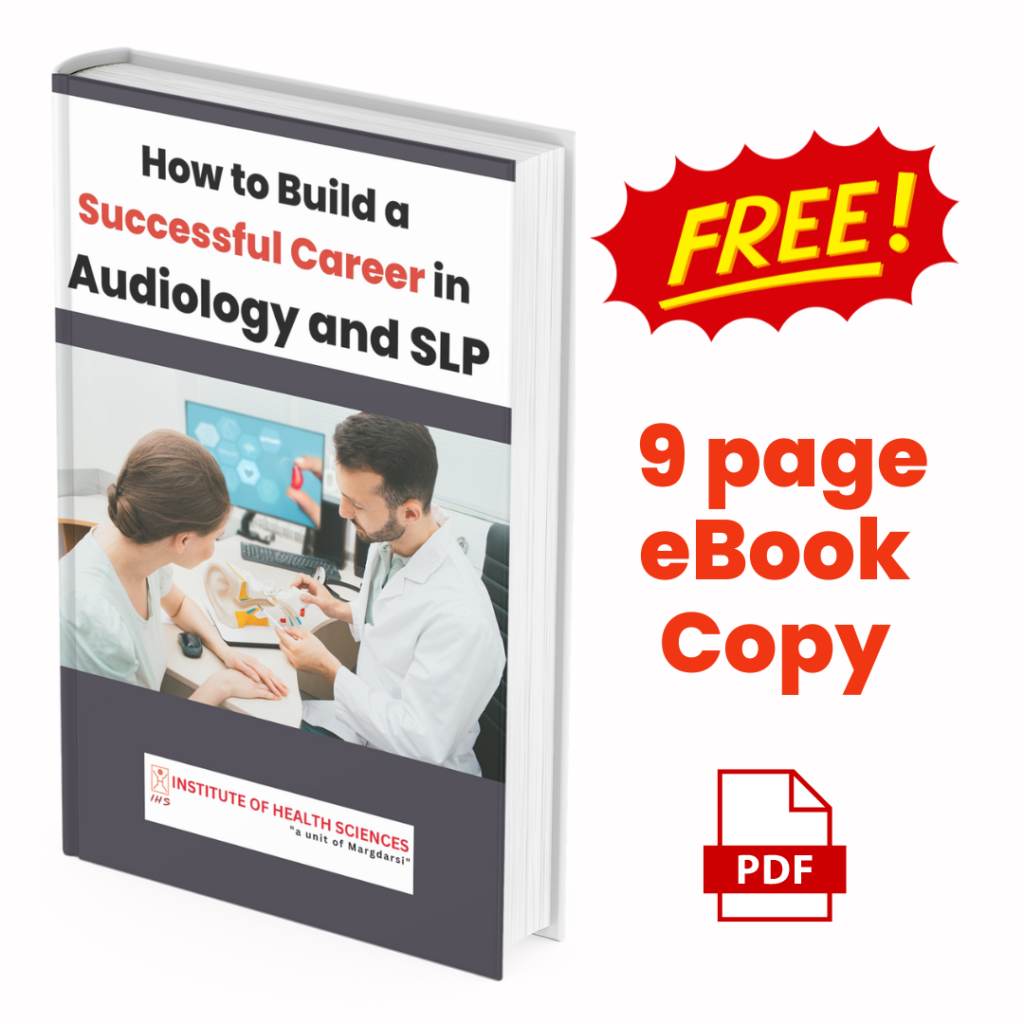
Claim your FREE copy today and start your journey towards success! https://forms.gle/1BowryfFGKFc1w9i8
✅ BASLP 6th Semester:
- Motor Speech Disorders in Adults: Students study motor speech disorders that affect adults, such as dysarthria and apraxia of speech. They learn assessment techniques and treatment approaches for these disorders.
- Language Disorders in Adults: This subject focuses on language disorders in adults, including acquired disorders like aphasia. Students explore assessment and rehabilitation strategies for adult language disorders.
- Aural Rehabilitation in Adults: Students learn about aural rehabilitation techniques for adults with hearing impairments, including counseling, auditory training, and the use of assistive listening devices.
- Audiology in Practice: This subject provides practical insights into the field of audiology, covering aspects such as professional ethics, documentation, and interprofessional collaboration.
- Clinicals in Speech-Language Pathology: Students continue their clinical practicum experiences in speech-language pathology, further refining their assessment and intervention skills.
- Clinicals in Audiology: This clinical component offers students additional practical experience in audiology settings, allowing them to expand their diagnostic and management capabilities.
- Rotatory Internship for 10 Months in Various Hospitals & Clinics: Students participate in a 10-month internship program, rotating through different hospitals and clinics to gain real-world experience in audiology and speech-language pathology.
- After internship viva will be conducted: Following the internship, students undergo a viva voce examination, where they present and discuss their experiences and learning outcomes.
- Clinicals in Speech Language Pathology: This component offers students continued clinical practicum opportunities in speech-language pathology to strengthen their skills.
- Clinicals in Audiology: Similarly, this BASLP subjects provides further clinical practicum experiences in audiology to enhance students’ practical abilities.
Read More: Are You Still Wasting Money on NEET Preparation in 2023? Here’s a Solution
BASLP Course Scope 👩⚕️
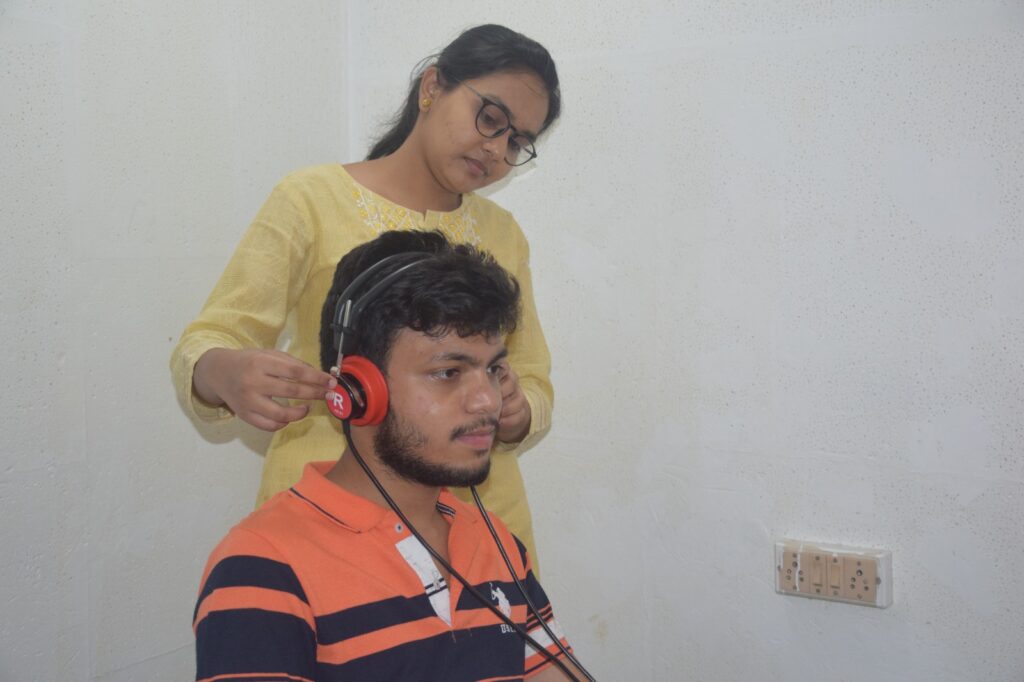
After completing a BASLP program, graduates can work as audiologists or speech-language pathologists in a variety of settings, including hospitals, schools, speech & languages clinics private practices, hearing clinics and government agencies.
Audiologists diagnose and treat hearing disorders, while speech-language pathologists diagnose and treat speech and language disorders.
The job outlook for audiologists and speech-language pathologists is projected to grow much faster than average over the next decade, according to the Bureau of Labor Statistics.
This growth is due to the increasing prevalence of hearing and speech disorders, as well as the growing awareness of the importance of early intervention for these disorders.
Get complete BASLP course details.
Read More: BASLP vs MBBS: Which Is Better?
BASLP Salary In India 🤑

The salary for a BASLP graduate in India varies depending on the experience, location, and type of employer. However, the average starting salary for a BASLP graduate in India is around INR 30,000 per month.
With experience, the salary can increase to INR 50,000-60,000 per month or more.
Here is a breakdown of the average salary for BASLP graduates in India by experience level:
- BASLP salary in India per month (Entry-level): INR 30,000 per month
- 1-3 years of experience: INR 40,000-50,000 per month
- 3-5 years of experience: INR 50,000-60,000 per month
- 5+ years of experience: INR 60,000-70,000 per month
The salary for a BASLP graduate can also vary depending on the location. In metropolitan cities, such as Delhi, Mumbai, and Bangalore, the salary is typically higher than in smaller cities.
The type of employer can also affect the salary. For example, BASLP graduates who work in government jobs typically earn a lower salary than those who work in private practice.
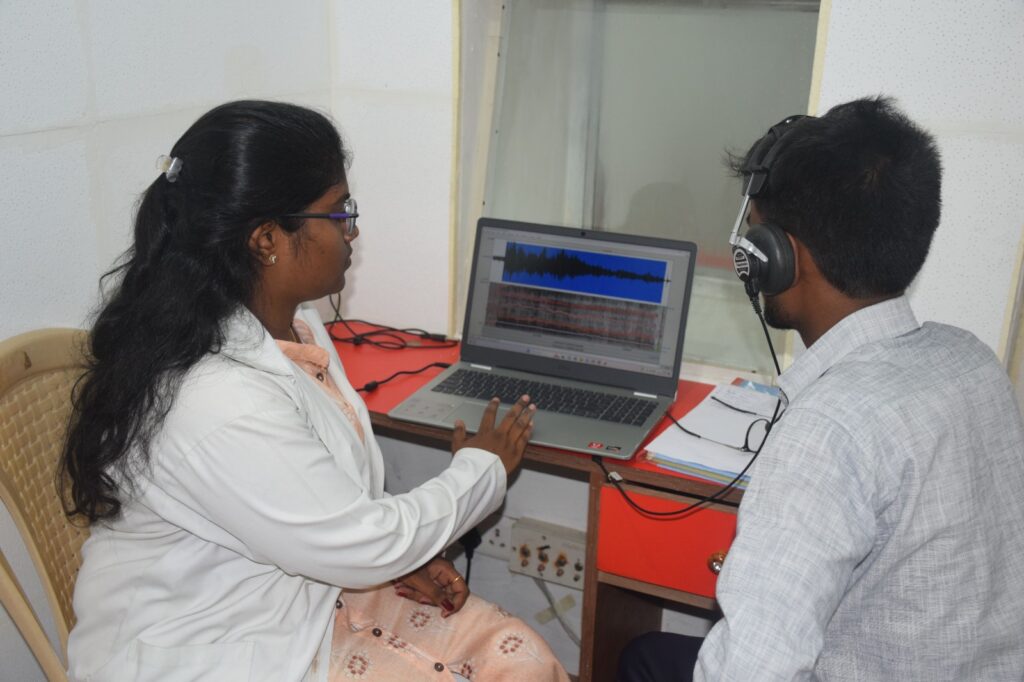
Overall, the salary for a BASLP graduate in India is competitive and offers good earning potential. With experience, the salary can increase significantly.
Here are some of the factors that can affect the salary of a BASLP graduate in India:
- Experience: The more experience a BASLP graduate has, the higher their salary will be.
- Location: The salary for a BASLP graduate can vary depending on the location. In metropolitan cities, the salary is typically higher than in smaller cities.
- Type of employer: The type of employer can also affect the salary. For example, BASLP graduates who work in government jobs typically earn a lower salary than those who work in private practice.
- Specialties: Some specialties in audiology and speech-language pathology, such as pediatrics or neurorehabilitation, pay higher salaries than others.
BASLP Entrance Exam 2023
In 2023, the entrance exam for BASLP (Bachelor of Audiology and Speech-Language Pathology) admission at IHS (Institute of Health Sciences) is the IMAT Exam.
The IMAT Exam is a comprehensive assessment that evaluates the knowledge and skills of prospective students seeking admission into the BASLP program. You can also apply for BPT course. It offers BASLP course, Bachelor of Physiotherapy, Master in Rehabilitation Science, MA in Yoga, B.Ed. in Autism, Other Certification Courses.
Its a only Autonomous College in Bhubaneswar.
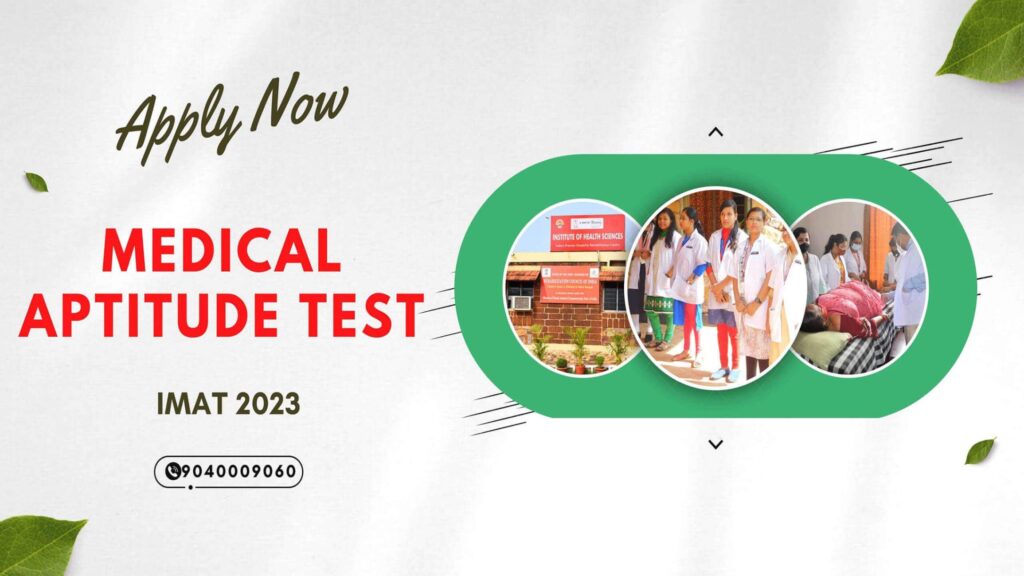
It is designed to test candidates’ aptitude in areas such as human communication, audiology, speech-language pathology, and related subjects.
The IMAT Exam serves as a crucial determinant in the selection process for BASLP Admission 2023 at IHS, ensuring that qualified candidates are accepted into the program.
Click BASLP Entrance Exam 2023 to register for BASLP Course.
Choosing a BASLP Private Colleges in India? Consider these 9 Factors
Conclusion
A BASLP degree is a great way to prepare for a career in audiology or speech-language pathology.
The program provides students with the knowledge and skills they need to diagnose and treat hearing and speech disorders, and it prepares them for the demands of working in a variety of settings.
Call 9040009060 to get direct admission in BASLP with Low Score In NEET
[saswp_tiny_multiple_faq headline-0=”h4″ question-0=”Is biology compulsory for BASLP?” answer-0=”Yes, biology is typically a compulsory subject for BASLP. Since BASLP focuses on the study of human communication, audiology, and speech-language pathology, a basic understanding of biology is essential to comprehend the anatomy, physiology, and functioning of the speech and hearing mechanisms.” image-0=”” headline-1=”h4″ question-1=”What is the job scope of BASLP?” answer-1=”The job scope of BASLP graduates is quite diverse. They can work as audiologists, speech-language pathologists, clinical researchers, consultants, educators, or administrators in various settings such as hospitals, clinics, rehabilitation centers, schools, research institutes, and government agencies. They assess and treat individuals with communication disorders, provide therapy, conduct research, develop intervention programs, and contribute to the field of audiology and speech-language pathology.” image-1=”” headline-2=”h4″ question-2=”Is BASLP better than BPT?” answer-2=”The choice between BASLP (Bachelor of Audiology and Speech-Language Pathology) and BPT (Bachelor of Physiotherapy) depends on individual interests and career goals. Both fields have distinct focuses and job prospects. BASLP deals with communication disorders and audiology, while BPT focuses on physical therapy and rehabilitation. It is important to assess personal preferences, aptitude, and long-term career goals to determine which field aligns better with individual aspirations.” image-2=”” headline-3=”h4″ question-3=”Is NEET required for the Speech and Hearing course?” answer-3=”NEET (National Eligibility cum Entrance Test) is not mandatory for admission to the Speech and Hearing course, including BASLP. The admissions process and eligibility criteria may vary across different institutions and universities. It is advisable to check the specific requirements of the institutions you are interested in for the most up-to-date information.” image-3=”” headline-4=”h4″ question-4=”Does BASLP require Maths?” answer-4=”In general, BASLP programs do not require mathematics as a compulsory subject. However, it is advisable to review the specific admission requirements of the institutions you are interested in, as requirements may vary. Some institutions may have specific prerequisites or preferences regarding subjects like biology, physics, or mathematics.” image-4=”” headline-5=”h4″ question-5=”Can I do BPT without Biology?” answer-5=”Typically, biology is a prerequisite for BPT (Bachelor of Physiotherapy) programs as it provides foundational knowledge of the human body and its systems. However, admission requirements may vary across institutions. It is recommended to check the specific prerequisites of the BPT programs you are considering to determine if they accept candidates without a background in biology.” image-5=”” headline-6=”h4″ question-6=”Which is the best college for BASLP?” answer-6=”There are several reputed colleges and universities that offer BASLP programs. The best college for BASLP may vary based on factors such as accreditation, faculty expertise, infrastructure, clinical facilities, research opportunities, and overall reputation. Some well-known institutions offering BASLP programs in India include Institute of health sciences. Bhubaneshwar, All India Institute of Speech and Hearing, Manipal College of Allied Health Sciences, University of Mysore. It is recommended to research and consider multiple factors when determining the best college for BASLP that aligns with your specific preferences and goals.” image-6=”” headline-7=”h4″ question-7=”How many semesters are there in BASLP?” answer-7=”BASLP programs typically consist of six semesters of academic coursework, followed by a period of clinical practicum and internship. The exact structure and duration may vary slightly across different institutions, but a typical BASLP program is completed within four years, including both academic and clinical components.” image-7=”” count=”8″ html=”true”]Introduction to BASLP Subjects
